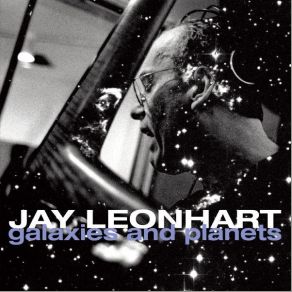Galaxies and Planets
Download links and information about Galaxies and Planets by Jay Leonhart. This album was released in 2001 and it belongs to Jazz, Pop, Bop genres. It contains 15 tracks with total duration of 54:38 minutes.

|
|
|---|---|
| Artist: | Jay Leonhart |
| Release date: | 2001 |
| Genre: | Jazz, Pop, Bop |
| Tracks: | 15 |
| Duration: | 54:38 |
| Buy it NOW at: | |
| Buy on iTunes $9.99 | |
| Buy on Amazon $8.99 | |
Tracks
[Edit]| No. | Title | Length |
|---|---|---|
| 1. | Endless Nights | 4:00 |
| 2. | Galaxies and Planets | 3:00 |
| 3. | I Got the Blues | 3:27 |
| 4. | Joy | 4:16 |
| 5. | Farmers Farming | 3:40 |
| 6. | The Judge | 5:04 |
| 7. | Woe Is Me | 3:16 |
| 8. | Double Parking | 3:41 |
| 9. | Dizzy | 3:52 |
| 10. | Bass Aboard a Plane | 3:26 |
| 11. | You Say That You’re Leavin’ | 2:52 |
| 12. | Customs | 4:06 |
| 13. | Rash Cash Blues | 4:11 |
| 14. | She’s Mean | 3:57 |
| 15. | German Shepherd | 1:50 |
Details
[Edit]Veteran bassist Jay Leonhart displays his talents as a lyricist, humorist, and singer on this whimsical release. Although the going gets occasionally silly, Leonhart's avuncular charm carries the day. Taken together, several of the tracks may signify a subgenre in the making: "Double Parking," "Bass Aboard a Plane," "Customs," and "German Shepherd" all survey some of the petty annoyances facing working musicians. The last of these finds Leonhart looking on the bright side after having his instrument urinated upon by a dog, and this pretty much typifies his upbeat disposition. As he says on the cosmological title track, "Galaxies and Planets," "Do not fret, just live your life, and love your fellow man." (The enhanced CD contains a video of Leonhart wandering through Grand Central Station singing the song, eliciting curious looks from harried commuters.) Leonhart ponders the majesty of the simple life in "Farmers Farming" and pays tribute to the late Milt Hinton, his mentor, on "The Judge." He also explores the unavoidable topic of love and heartbreak on "I Got the Blues," "Woe Is Me," and "You Say You're Leavin'." The hands-down funniest and most likable track, however, is "Dizzy," in which Leonhart candidly expresses his humiliation at being the only member of a group of musicians in a restaurant that Dizzy Gillespie does not remember: "He does not recognize me/He never does he never has/He thinks maybe I'm someone's agent/or a dentist who is really into jazz/But I've worked with Diz on numerous occasions/We've played together three times at Carnegie Hall/But in this little restaurant in Ireland/I'm the one that Dizzy can't recall." In all likelihood, most working-stiff musicians have similar stories, and it says a lot about Leonhart's humility and generosity that he's willing to go public with his. Some of the songs are based on familiar bebop progressions. As for Leonhart's lyrical style, it has little to do with simple melodies or hooks. He's loquacious, packing as many words in as he can get away with. There's more than a trace of Eddie Jefferson-style vocalese in these ditties, although Leonhart's singing is more tongue-in-cheek and amateurish. In their level of detail, the lyrics at times seem related to the ballad form — not the modern jazz ballad, but the vintage folk ballad, the story put to song. Pianist Ted Rosenthal is Leonhart's primary accompanist here, with son Michael Leonhart contributing a number of tasteful trumpet solos. Two guitarists, Joe Beck and Mark Elf, also appear during the course of the album, their widely divergent styles adding a refreshing variety to the set. (The inside sleeve, on which all the lyrics are printed, lists the songs in a slightly incorrect order.) ~ David R. Adler, Rovi